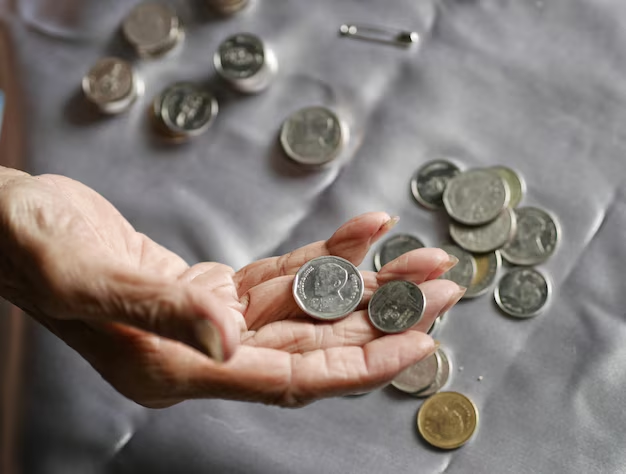Discovering Banking Convenience: Do Chase Banks Offer Coin Machines?
When it comes to banking, convenience is king. Many consumers are curious about whether Chase Bank provides coin machines for their customers. As you dump out your change drawer, take a moment to consider where you can quickly and efficiently convert those coins into cash or deposit them into your account. But does Chase Bank have the solution you’re looking for? Let’s explore what Chase offers and how you can manage your coins effectively.
Understanding Chase Bank’s Coin Policy
The Reality: Coin Machines at Chase Bank
Chase Bank, recognized for its extensive range of financial services, unfortunately does not typically provide coin machines in its branches. This might come as a surprise to many who are accustomed to seeing these machines in various banking or retail locations. The decision not to include coin machines in Chase branches could be influenced by factors such as maintenance costs, logistic challenges, or a shift towards digital banking solutions.
What to Do Without Coin Machines?
For customers who need to handle a surplus of coins, the absence of a coin machine can require some ingenuity. Here are some practical alternatives you can consider:
Coin Counting Services: Although Chase may not offer in-branch coin machines, other institutions like banks or credit unions might. It’s worth checking local branches or researching which nearby banks provide this service.
Alternative Coin Solutions: National grocery stores and some large retail chains often host third-party coin-counting machines that charge a fee but allow you to convert your change into cash or store credit readily.
DIY Coin Rolling: You might opt for the traditional approach by rolling coins yourself. Chase might still accept rolled coins, but it’s recommended to check with your local branch first.
Exploring Broader Banking Convenience at Chase
Digital Banking and Coin Management
While Chase Bank might not facilitate coin transactions in the form of machines, it offers an array of digital services that enhance overall banking convenience:
Mobile Banking: Chase’s mobile app allows users to handle transactions with ease, including transferring funds, paying bills, and checking account balances.
Online Deposits and Transfers: Even if physical coins require a manual approach, you can leverage online systems for seamless deposits and money management.
Cashless Payments: Embrace cashless transactions, reducing the need for handling physical currency altogether. Utilize Chase’s debit and credit card options for everyday purchases.
🔍 Key Considerations for Coin Handling
Whether you bank with Chase or another institution, here are some practical tips for managing your coins efficiently:
Verify Fees: If using a third-party coin counter, be mindful of the service fees. Some machines charge a percentage of the total coin value.
Plan Coin Collection: Consider setting aside a specific container for collecting coins over time. This practice reduces clutter and simplifies counting and depositing processes.
Rolling Supplies: Keep a supply of coin wrappers handy if you choose to roll coins yourself.
Exploring the Alternatives
If you're someone who often finds themselves with an abundance of spare change, it might be beneficial to consider opening accounts or using services at banks that do offer coin counting machines. Balancing the convenience against potential fees or account requirements is important in making this decision.
FAQs About Banking With Chase
Does Chase Accept Rolled Coins?
Yes, Chase Bank may accept rolled coins at their discretion; however, practices can vary by branch. It is best to inquire with your local Chase branch to understand any specific requirements they may have.
Can I Use Chase ATMs for Coin Deposits?
No, Chase ATMs typically do not accept coins for deposit. Their ATM services focus mainly on cash and check transactions. For coin deposits, other methods must be used.
Does Chase Offer Coin-Related Promotions?
While Chase doesn’t provide coin machines, they occasionally offer promotions for opening accounts or using specific services. It might be worth consulting their official communication channels for current promotions.
💡 Conclusion: Navigating the Coin Dilemma Without Hassle
Chase Bank may not offer coin machines, but this doesn’t mean you’re out of options. Clearly, there are plenty of other methods to sort and manage your coins conveniently. Explore alternatives in your local area like grocery stores with coin counting services or consider taking the hands-on approach of rolling coins yourself. Meanwhile, leverage Chase's robust digital banking services for your broader financial needs without missing a beat.
By staying informed about your options and utilizing available resources, you'll ensure that even those loose coins end up working in your favor. Whether you decide to use your coins for savings or a small treat, managing them efficiently can contribute to sound financial habits.
🔑 Takeaways: Manage Your Coins Like a Pro
No Coin Machines at Chase: Explore other banks or retail locations.
Use Alternative Services: Consider third-party solutions where available.
Adopt Digital Tools: Embrace cashless options and mobile banking.
Practical Habits: Regularly collect, sort, and decide how to use spare change.
Remember, financial flexibility includes making the most of even the smallest resources—like coins! 🪙

Related Topics
- a Chase Bank Near Me
- Are Banks Open Today Chase
- Are Chase Banks Open Today
- Can Chase Bank Give Personal Loans
- Can Chase Bank Notarize Documents
- Can I Cash a Check At Chase Bank
- Can I Cash a Savings Bond At Chase Bank
- Can I Cash Savings Bonds At Chase Bank
- Can I Close a Chase Bank Account Online
- Can I Close My Chase Bank Account Online
